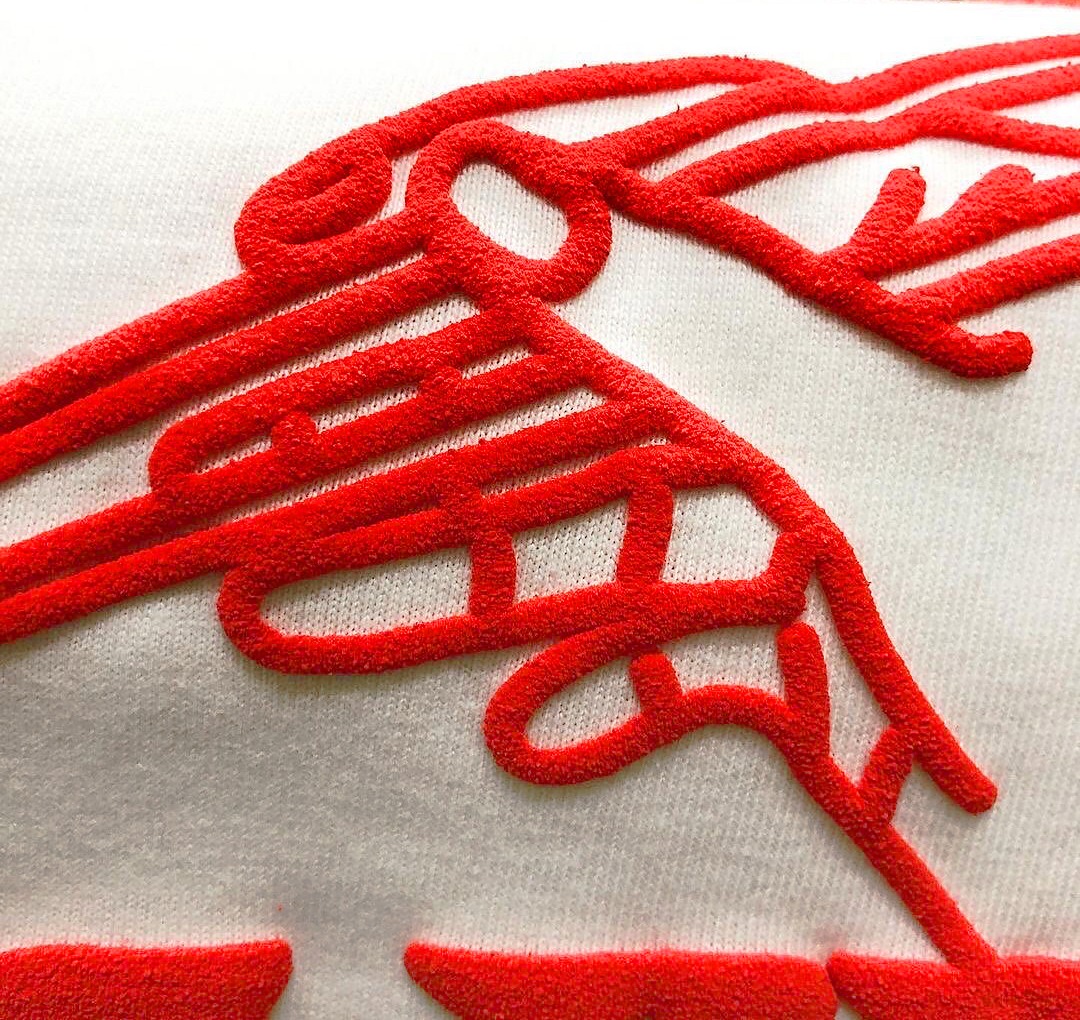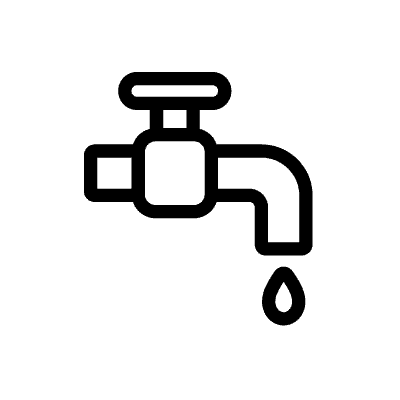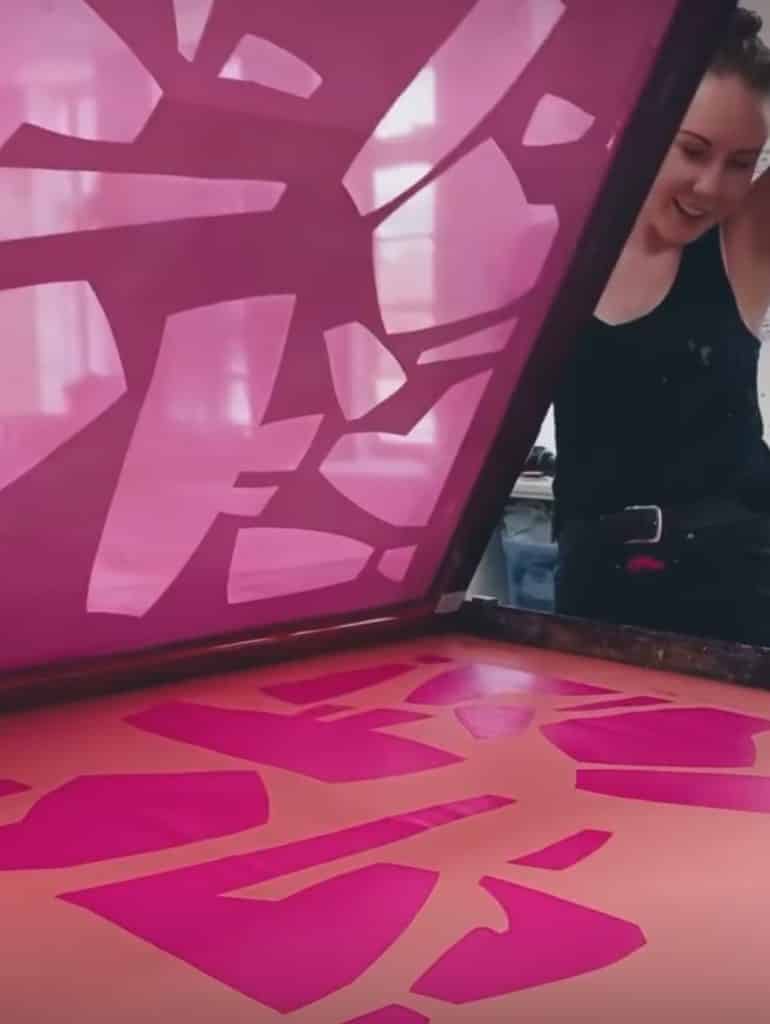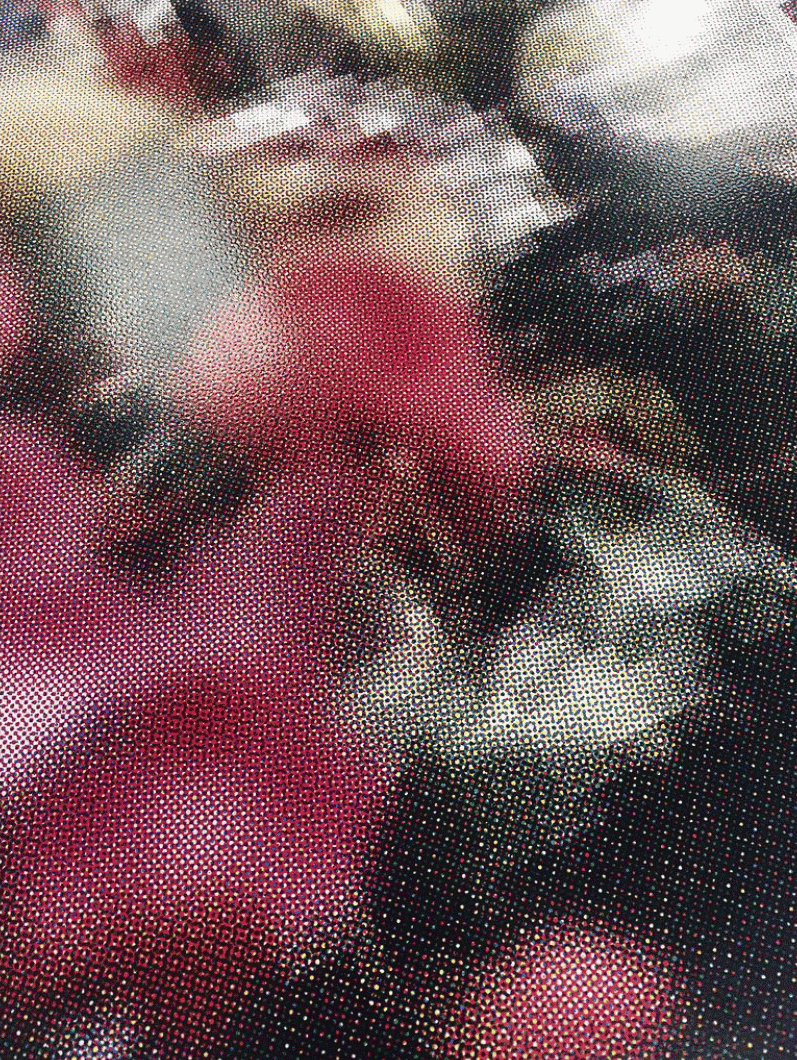
Unleash your students’ creativity with water-based screen printing ink solutions
Mark Dustin. Detail of four colour screenprint on aluminium. Platinize, 2017 @markdustin
PERMASET water-based inks are an excellent choice for educators and schools looking for an eco-friendly and sustainable ink option for their screen printing projects. Not only do these inks produce high-quality prints with vibrant colours, but they are also safe for your tech staff, your students and for the environment.

PERMASET Inks are formulated with high quality pigments and are free from harmful chemicals, making them a safe and responsible choice for classroom use. They are also made with 100% renewable energy. For educators, using PERMASET’s water-based screen printing inks is an excellent way to support the tide of change towards a greener future and instil important values of sustainability in the next generation of screen printers.
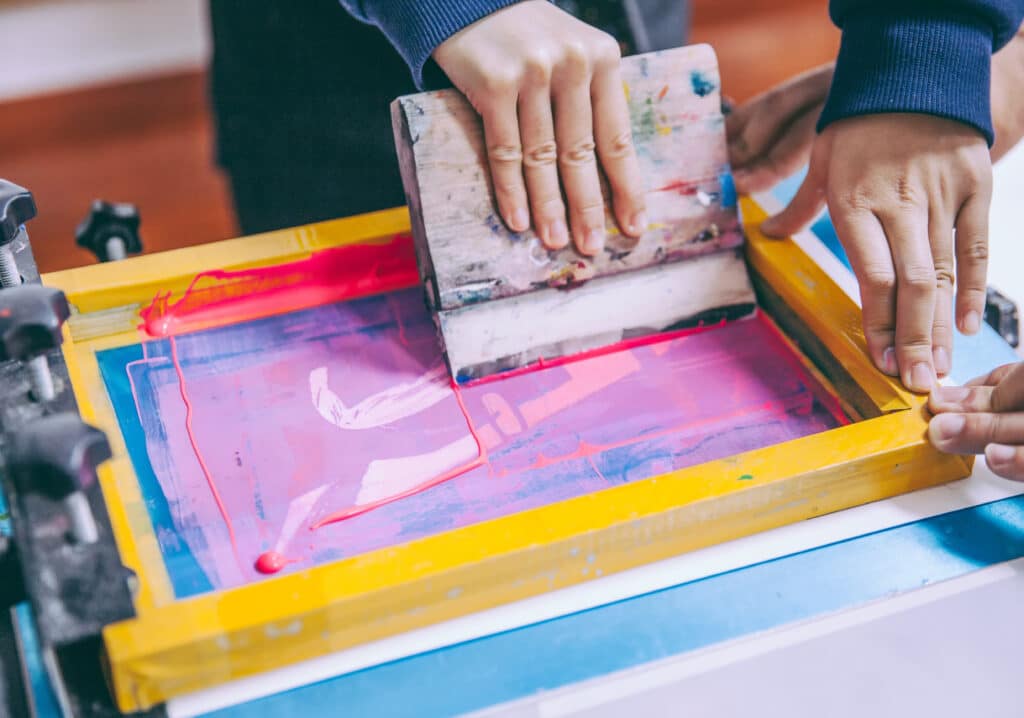
Why water-based inks?
In today’s world, where sustainability is a top priority, screen printing inks for schools and other educational institutions play a crucial role in promoting more environmentally friendly printing practices.
PERMASET Inks represent an excellent choice for water-based ink supplies for schools, Colleges and other Tertiary Institutions, offering high-quality, eco-friendly and long-lasting inks. By choosing PERMASET water-based inks, educators and students significantly reduce their environmental impact while still enabling the creation of beautiful, long-lasting and vibrant prints.
In addition to being made from high quality raw materials and renewable energy, PERMASET Inks are free from harmful chemicals such as phthalate plasticisers and PVC (polyvinyl chloride) resin, making them much safer for the environment, the people using them and people wearing any finished garments. They’re also non-toxic, non-flammable, and biodegradable, making them an excellent choice for eco-conscious print practitioners and students.
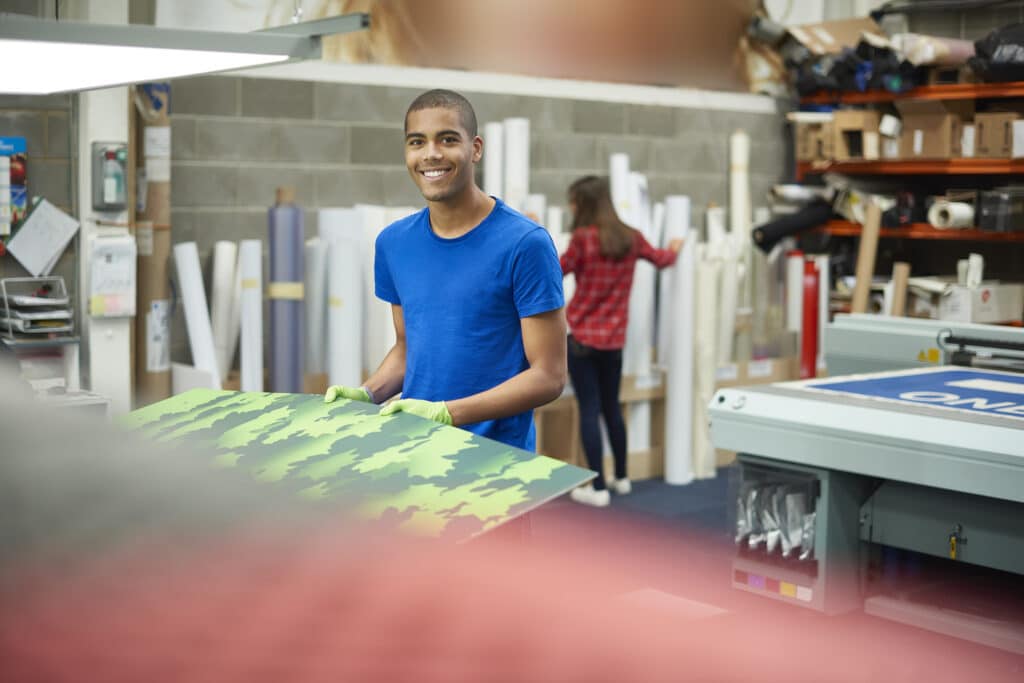
Resources for educators and students
Tutorials
Looking for screen printing tips and tricks? Our website offers a wealth of helpful resources, including videos, e-books and blogs that are available here.
In addition to general screen printing content, our website also offers e-books that focus specifically on Reductions of PERMASET AQUA and PERMATONE Inks. These e-books cover everything from reductions and colour mixing to the design and creation of colour harmonies……so they’re great resources for anyone looking to get the most out of these high-quality inks.
YouTube
Whether you’re new to screen printing or have been doing it for years, our content as water-based ink suppliers for schools is designed to help you take your art to the next level. From mastering the flood stroke and print stroke to perfecting the design-to-print process, our YouTube channel has got you covered.
Free download: PERMASET Reductions e-book

Our range of sustainable inks
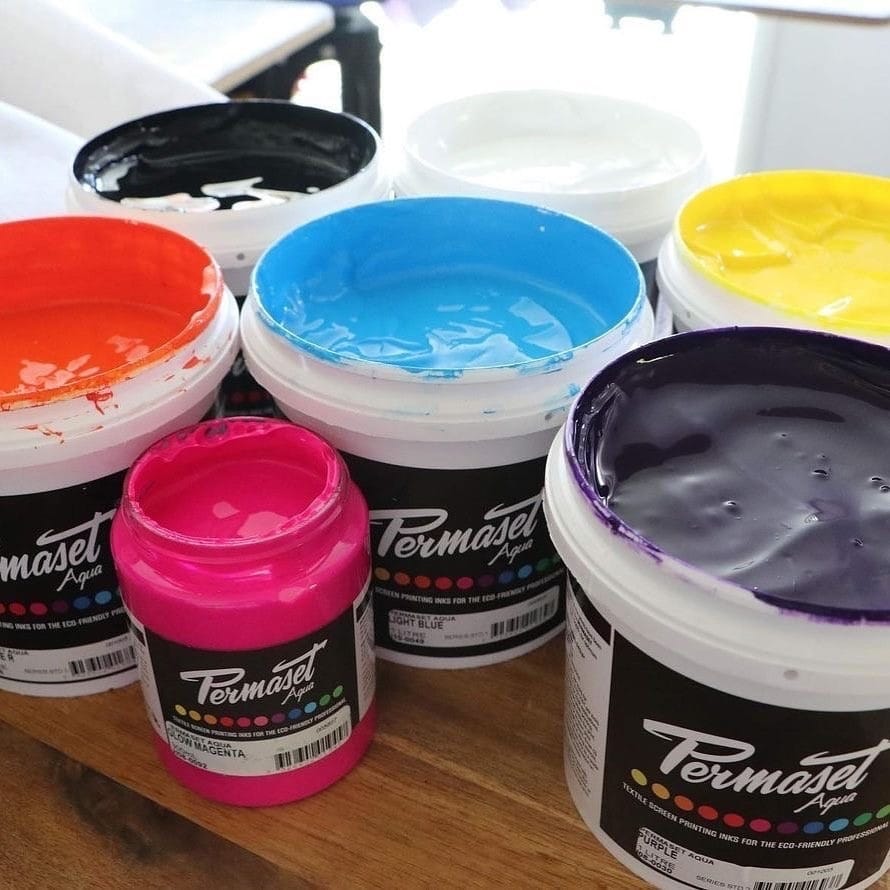
PERMASET AQUA
Setting the industry standard of water-based inks for light-coloured fabrics.
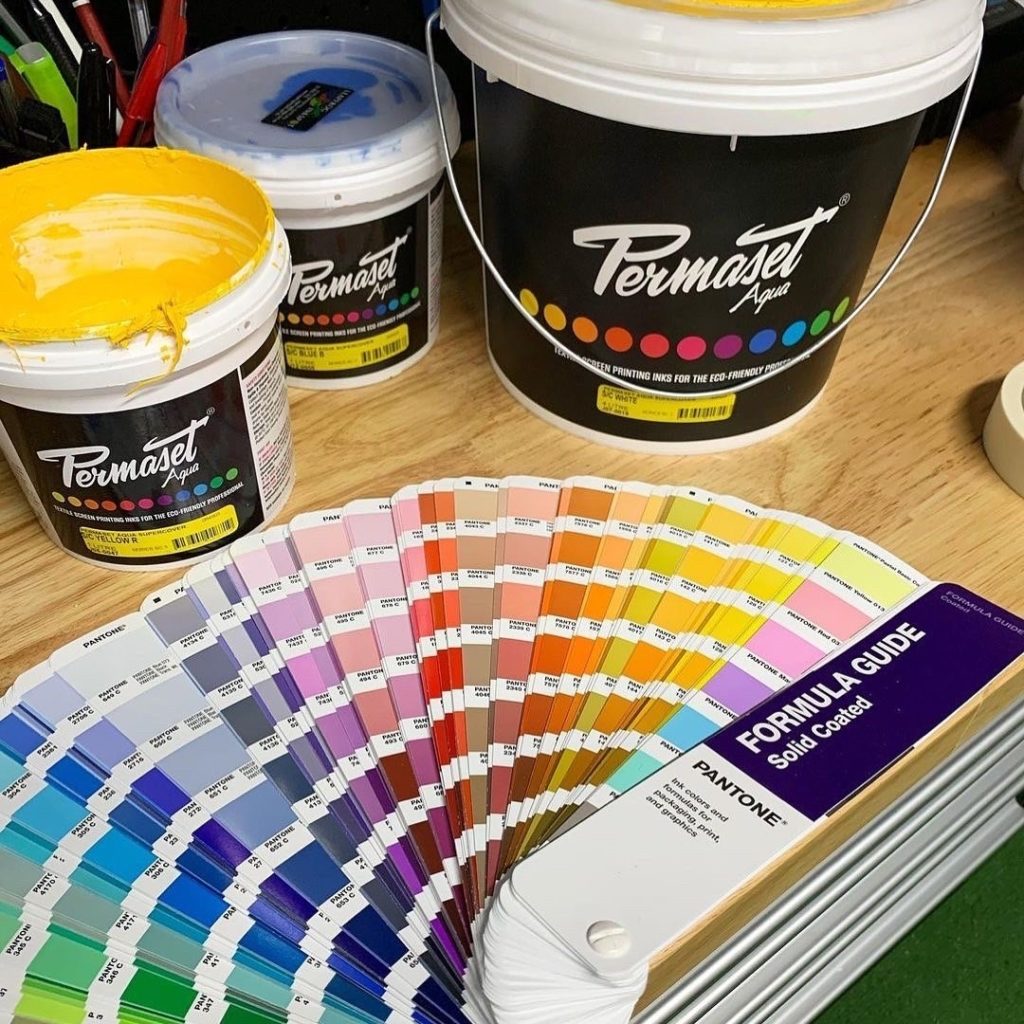
PERMASET SUPERCOVER
Unsurpassed colour and opacity even on the darkest fabrics.
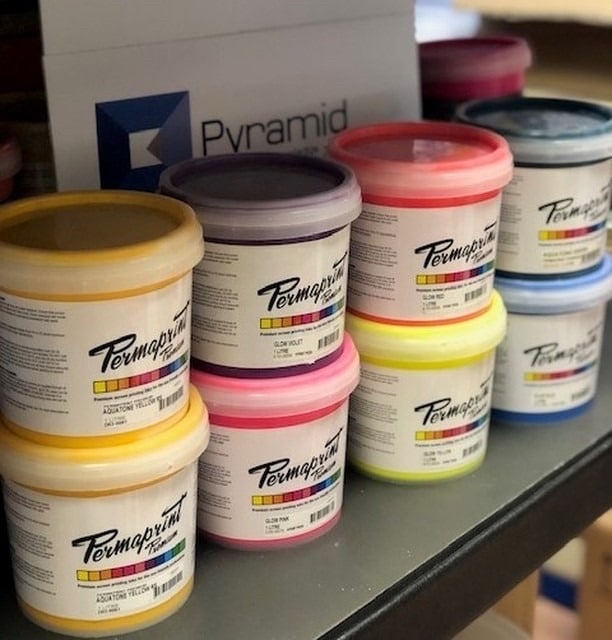
PERMAPRINT PREMIUM
Inks for printing on paper, board, plastic, glass, wood, metal & other substrates.
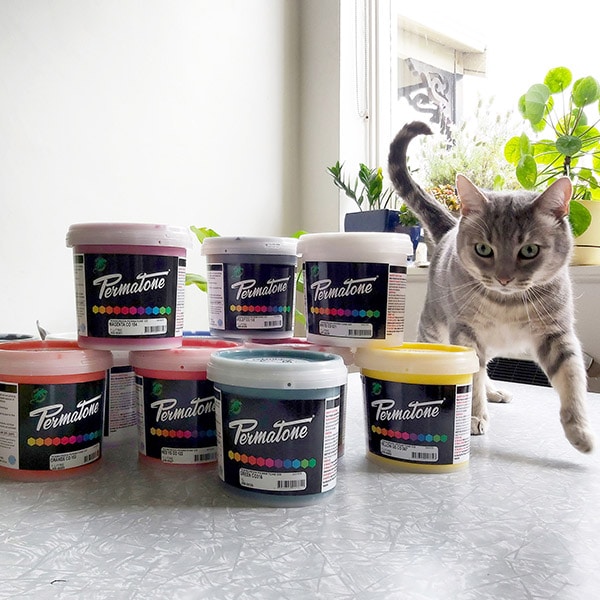
PERMATONE
Colour matching set for printing on fabrics, can be mixed to match 1869 colours. Organically Approved by the Soil Association of the UK to GOTS v 6.0.
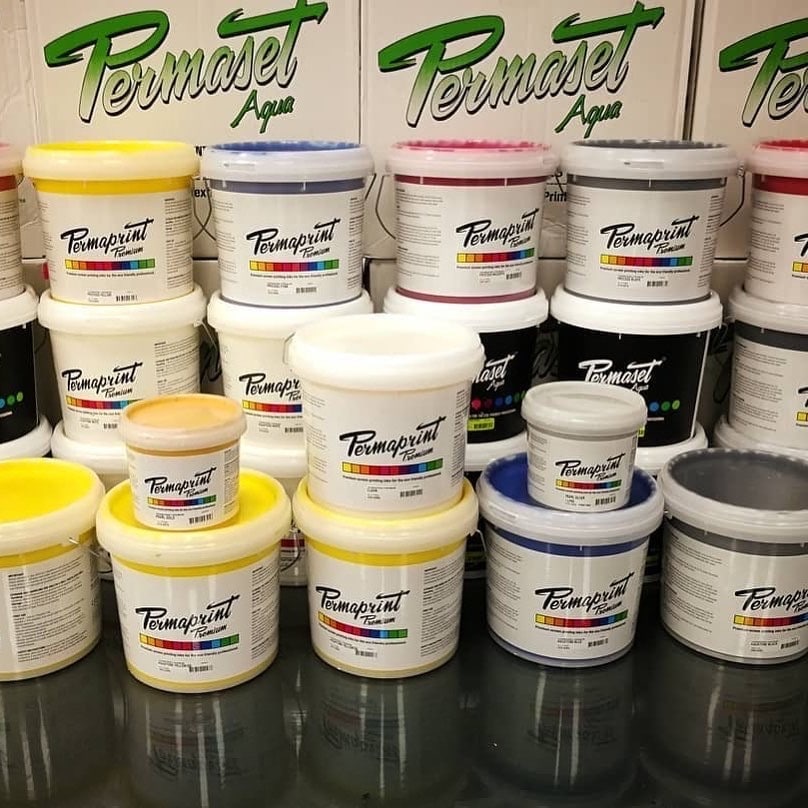
AQUATONE
Colour-matching set of inks for printing on paper, board, plastic, glass, wood, metal & other substrates.
Why choose PERMASET
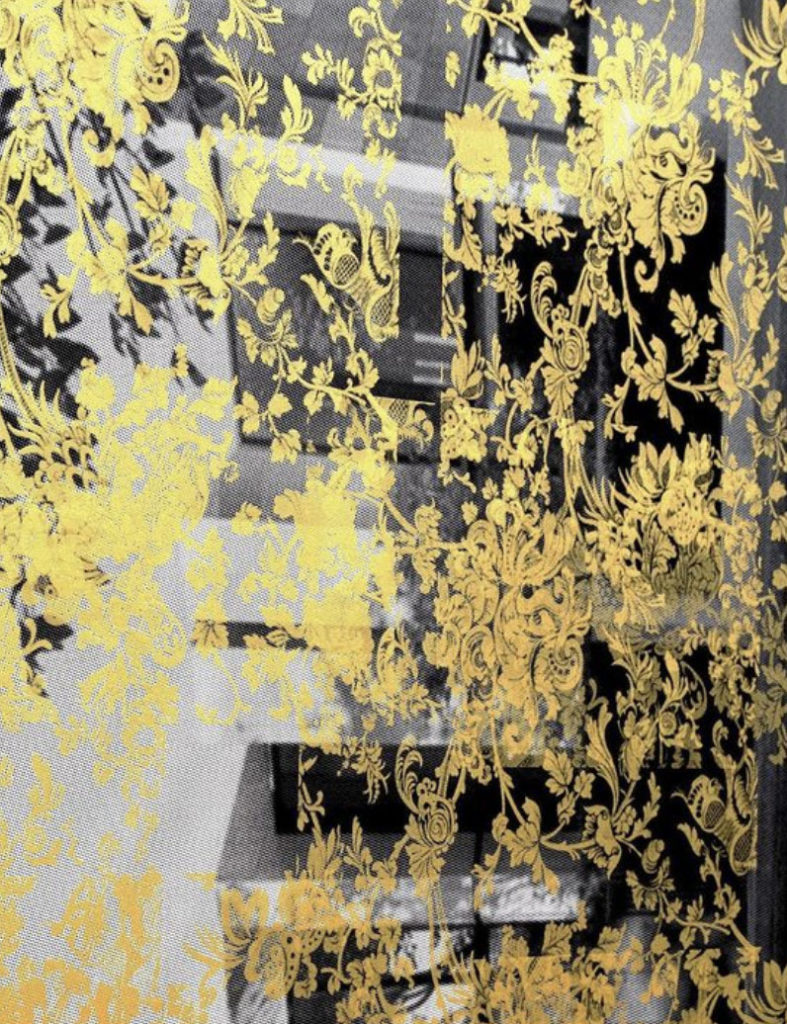
What educators have to say about PERMASET
I was first attracted to PERMASET Inks because of the print quality and have chosen to continue to work with them because of the environmental approach taken in their production. As an educator, I recommend these inks to all of my students, for technical, educational, print quality and environmental reasons. I am fully supported by the manufacturer with exceptional teaching materials that have enhanced the way I teach colour.
Dr Mark Dustin
Artist and Lecturer, Melbourne
We have your back
Our help centre is regularly updated with instruction videos, how-tos, colour cards, technical data sheets and advice to
Frequently asked questions
Yes, water-based inks can be used with a screen printing press. In fact, water-based inks have become increasingly popular among screen printers because they are eco-friendly, produce vibrant colours, and are easy to clean up with water.
When using water-based inks, it is important to choose the appropriate mesh count for the design you are printing, as well as the proper squeegee blade and angle. It is also recommended to use a pallet adhesive to prevent the fabric from moving during printing. We do NOT recommend the use of spray adhesives for health, environmental and housekeeping reasons.
It’s worth noting that water-based inks may require a bit more attention and care than plastisol inks traditionally used for fabric printing. For example, water based inks may dry out faster and be more inclined to clog the screen if not used quickly, so it’s important to be well prepared, to keep the ink surface moist and to work efficiently. Additionally, water-based inks may require a longer curing time or the use of a heat press to properly heat set the ink, once printed.
While water-based inks can be used with a standard screen printing press, they may require some special equipment or tools to achieve the best results.
For example, it is essential to use a screen emulsion specifically formulated for water-based inks, as traditional emulsions are often water sensitive and are unlikely to hold up to the moisture in the ink. It’s also recommended to use a scoop coater with a special coating technique to achieve an even and consistent emulsion layer over the mesh, but that recommendation would apply regardless, as good screen coating practice.
For printing with water-based inks, another tool that may be helpful is a spray bottle filled with water to keep the ink from drying out too quickly during printing by replenishing moisture lost to evaporation, particularly under low humidity conditions.
Lastly, a heat press may be necessary to properly cure the water-based ink onto the fabric, as air-drying alone is not likely to achieve the desired results.
Water-based inks are not necessarily more expensive than traditional inks, and in some cases, they may even be less expensive.
The cost of screen printing ink can vary depending on factors such as the brand, colour, and quantity/pack size purchased. However, when comparing water-based inks to plastisol inks, water-based inks may actually be less expensive. This is in part because they do not require the same chemical additives as plastisol inks.
Yes, water-based inks can be mixed together to create new colours, just like traditional artist paints. Particularly in the Education space, the teaching resources, Reductions of PERMASET AQUA and Using the PERMASET Colour Wheel are invaluable as an introduction to colour mixing. They contain well thought out information presented very accessibly to help your students get off to a flying start without wasting hours of class time together with buckets and buckets of ink, all the wrong shade and usually brown.
Mixing water-based inks allows for a wide range of colour options and can be a cost-effective way to achieve specific shades without having to purchase additional ink colours.
When mixing water-based inks, it’s important to use clean mixing containers and imperative to mix the inks thoroughly to ensure the new colour is consistent throughout the mixture; thus transparent or semi-transparent containers are recommended. Finally, it is recommended that the mix formula, operator details and date are all recorded on the outside of the container and that the lid be tightly sealed after use.
It’s important to keep in mind that water-based inks can be sensitive to changes in temperature, humidity and prolonged exposure to air. This means that it’s best to mix only what is needed for the print job to prevent waste and potential colour inconsistencies.
PERMASET Inks are 100% water-based and do not contain any organic (hydrocarbon) solvents. The only solvent is water.
There are a number of white inks in the PERMASET range. Which is the correct white ink to use as an underbase for overprinting with PERMASET standard and PERMATONE inks when printing on dark fabrics?
PERMASET FIRST DOWN WHITE Ink has been specifically formulated for use as an underbase (flash white). It is used by trade printers who wish to print on dark fabrics but use regular PERMASET Standard colours or PERMATONE Inks to retain their superior softness and vibrancy. The First Down White should only be used by shops with multi-station print facilities where tight registration can be maintained.
PERMASET SUPERCOVER WHITE is the premium opaque white ink for printing directly onto dark fabrics. It has the highest levels of titanium dioxide pigment for use on dark coloured fabrics. Excellent opacity in a water-based ink. Despite having been the flagship product in the PERMASET SUPERCOVER range for well over 30 years, in more recent times, this style of ink has become popularly known as HSA or High Solids Acrylic.
PERMASET STANDARD WHITE is a soft handle white ink for printing onto light coloured fabrics. It delivers a significantly softer hand than the PERMASET SUPERCOVER White ink, yet still delivers a beautifully crisp white print and looks spectacular when used for white-on-white prints.
My inks are drying into the screens. Help!
This is probably the biggest problem for people who are starting to use or are changing over to water-based inks, particularly from plastisols, which are very forgiving in this regard.
Prevention is better than cure, so a good first step is to keep humidity in the print area above 40-50% RH. Once the relative humidity gets below 40%, the inks will show much greater propensity to dry in and printing will become a lot more difficult. Getting an hygrometer for your print room is a great investment.
When people first start printing with water based inks, they can use a fine mist of water every 15-20 prints to maintain the moisture of the ink on the screen. Many people swear by this method. The most important thing is to flood the screen with a layer of ink (1-2 mm; 1/16-1/10”) and to keep the ink moving; that is, work quickly (but don’t rush). If a screen has been sitting around doing nothing for a while, pull a test print from it onto a scrap T-shirt, piece of fabric or even newsprint and inspect the clarity of the print, particularly around any fine detail.
If the ink does start to dry on the screen a little, don’t panic. Just pull another print on a test piece, so that as much ink is cleared from the image area of the mesh as possible, take a damp rag and clean both sides of the screen, then remove excess moisture with another rag. Reflood the screen, take another test print and then you’re good to go again.
Mesh count is often a factor. Most garment printers use a 43T (110 tpi) mesh. All other things being equal, the higher the mesh count, the quicker the ink will dry in. However, S-meshes have been a wonderful invention for printing with water based inks. With S-meshes, higher mesh counts can be more forgiving than the same thread count with a conventional mesh. Check out the S-mesh comparison tables.
Use a good emulsion that is compatible with water-based inks and maintains its integrity and you can get good results even with a coarser mesh. With increased experience, you will eventually master 77-90T (195-225 tpi) meshes for SUPERCOVER and up to 120 T (305 tpi) for PERMASET AQUA, PERMATONE and PERMAPRINT Premium.
